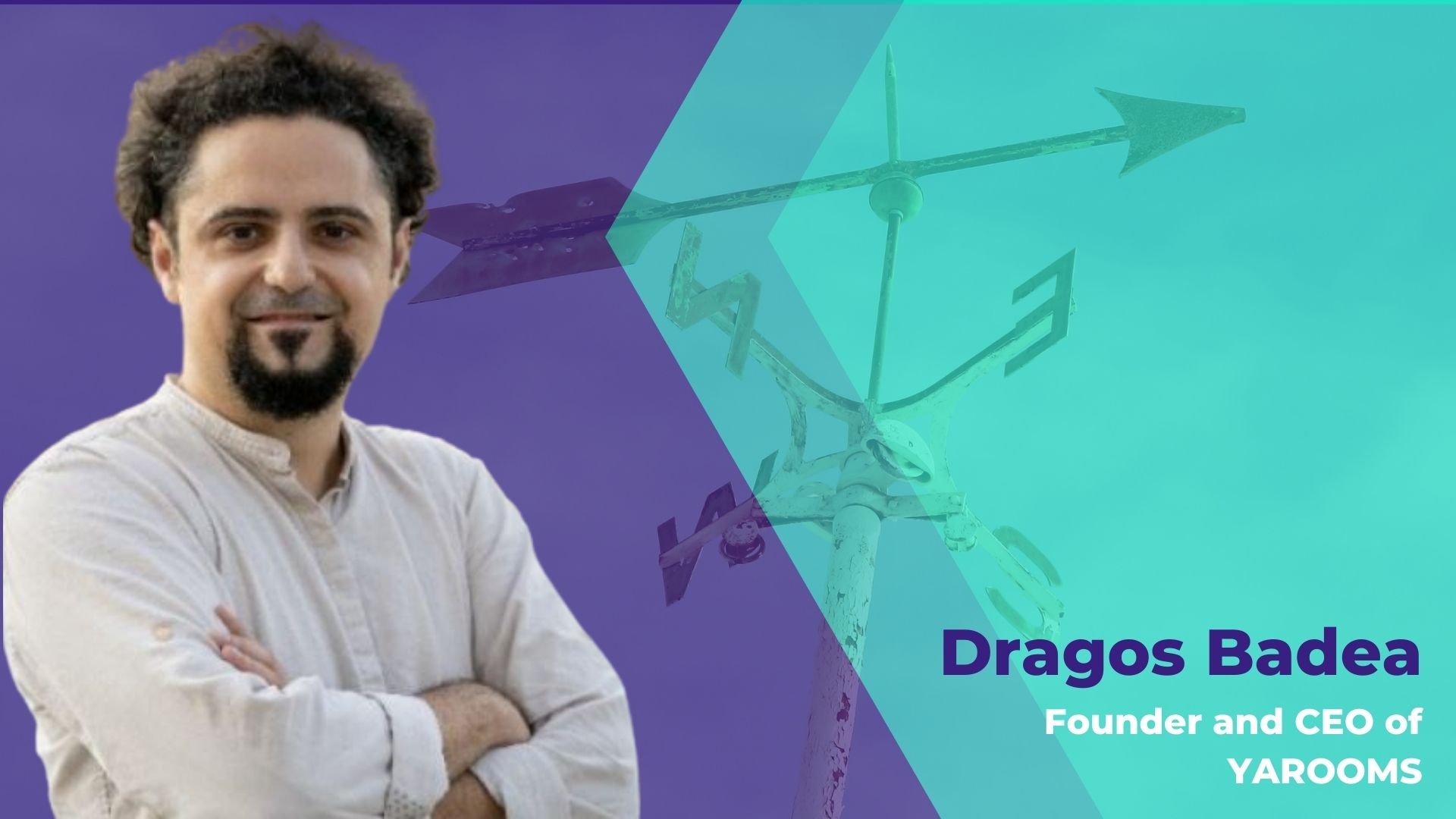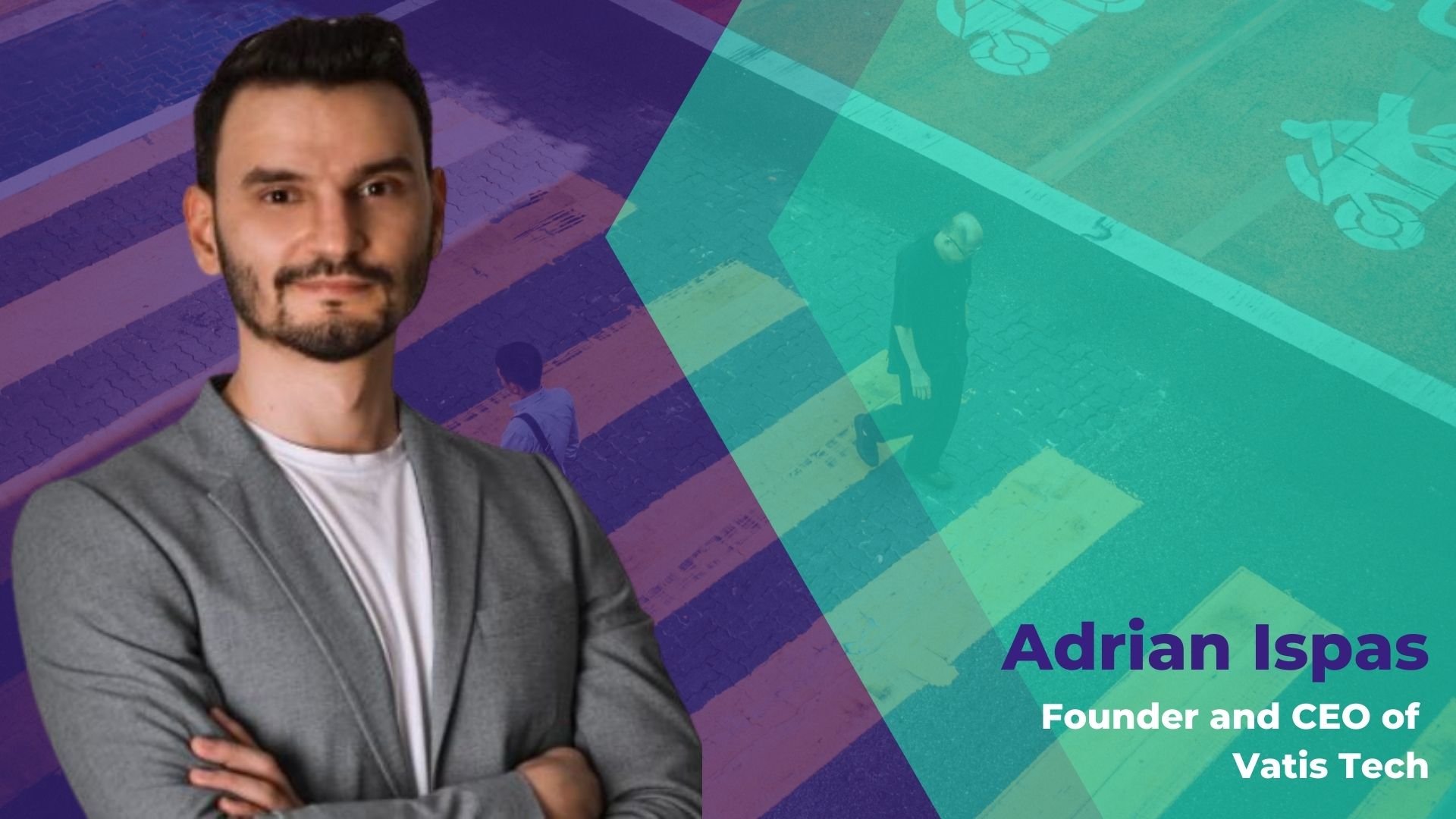The pandemic was an eye-opener for many startup founders. For Dragos Badea, founder and CEO of Bucharest-based Yarooms, a workplace technology company since 2011, 2020 brought a loss of 10% of their clients in the first week of lockdown, while in 2022 they are getting ready to double their team and expand globally.
When it comes to the startup world, pivoting means changing the business strategy, be it by changing the product, the solution, or the target. Focusing on a new market can change the project altogether, but it can also mean everybody will keep working and improving. The Recursive reached out to three Romanian founders to discover how pivoting at the right time can save a startup and the lessons they learned along the way.

“In May 2020 we started our pivot to what is now the Yarooms Workplace solution to help larger companies plan and organize the return-to-work strategy and enable a flawless employee experience. This move was inspired by talking to our customers and gaining a deep understanding of their situation and upcoming challenges,” Badea shared with The Recursive.
Even if their solution was well established on the market, many SMBs were unsure how long the pandemic would last, so they reduced their costs. This is when the Yarooms team decided it was time to change the market and the sales approach.
They moved upmarket, expanded their product portfolio, and improved customer experience, while also learning. The biggest lesson for Badea was that “you can never talk too much with your customers”.
Talking to customers and having a united and experienced team on board were Yaroom’s secrets to moving forward after the lockdown. Looking back, he would have liked to shift the business strategy sooner to not miss out on this new product/market fit.
“If you are building a B2B/enterprise SaaS, you need to be the first seller of your product, even if you don’t have previous sales experience. I took an intensive sales class online and learned basic sales to close the first 500k ARR (annual recurring revenue). Even though I’m not a sales pro and now the sales team has real sales stars on board, I would still do the same. Being able to short-circuit the product -> sales -> product loop was pivotal to our success,” concludes Badea.
Nevertheless, he plans on building the team in 2022 in the US as well and says that an investment is in sight too, “we’re going from a profitable, bootstrapped company, to an accelerated growth company.”
Flexibility and efficient networking
Mihai Petre, a co-founder and Machine Learning Engineer at Bucharest-based ESENCA, an AI platform for fashion retailers, has a similar pivoting experience influenced by the 2020 pandemic and client feedback. This is when the team pivoted from a B2C strategy to a B2B approach, which also influenced the change of their product.
At the beginning of 2020, ESENCA was launched as a solution for local tailors to provide remote services to their clients. The team offered a mobile app that measures the human body and an online store for made-to-measure clothes.
But after the first lockdown, in August, they pivoted to B2B. They understood from client meetings that they can solve the issue of loss of profits due to high return rates and the popularity of online shopping.

“By understanding the potential of our technical innovation, we were able to convert ESENCA to the modular and flexible SaaS product that offers today the most accurate body measurement and fit recommendation API for fashion eCommerce and local tailors,” shares Petre.
By the end of 2020, the ESENCA team managed to gain more clients, lower return rates, improve customers’ shopping experience, and expand to wider markets, besides the online fashion industry, like medical and fitness. One of the big lessons that Petre learned was to invest more time and energy in the Customer Discovery part of the initial research.
“We learned that there is more to our product than the one straightforward way we first discovered, in which we can take full advantage of the modularity and flexibility of our technological innovation. Moreover, we learned that the research and efficient networking played key factors into our earliest business-wise advancements,” concludes Petre.
He also says that building ESENCA has been exhausting at times, but rewarding for growth, and the team intends to continue this adventure. They are launching their solution on the Shopify App Store and the Microsoft Azure Marketplace.
Why “the customers are always right”?
Customer research was also the solution of Adrian Ispas, founder and CEO of Bucharest-based Vatis Tech, a vocal recognition software launched in 2020. The startup was built as a B2C platform for podcasters, journalists, and individuals that use a cloud provider for their speech-to-text solution. But they soon realized that their customers might spend more time reviewing the output than transcribing it themselves.

“We learned from our user’s feedback and decided to build a new technology that is more accurate than the current solution from the market. This is the way we decided to pivot from building a B2C platform to building a speech recognition infrastructure for everyone,” Vatis Tech’s CEO shares.
The biggest lesson, after trusting customer feedback and his gut, was that the team has to build the technology they intend to use to have control over it and improve it in time. He wants the Romanian language to be more reliable in the next six months.
Because they pivoted in the first months, Ispas says that the price they paid for these key lessons now was worth it. He plans to extend the team, especially in positions like AI/Machine Learning and sales.
“To run a startup isn’t the easiest thing to do, but is probably the most meaningful thing to do, especially when you build something people want,” Ispas adds.







